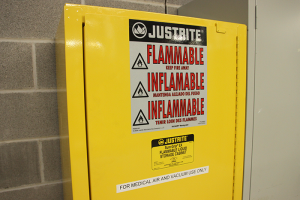CDC, FDA and ASHE top regulatory issues in the November issue
CDC, FDA update reprocessing recommendations
Central services // The Centers for Disease Control and Prevention and the Food and Drug Administration (FDA) recently updated an advisory urging health care facilities to review their procedures for cleaning, disinfecting and sterilizing reusable medical devices. The update rescinds one of the earlier recommendations, and clarifies that health care facilities that hire contractors to perform device reprocessing should verify that the contractor has an appropriate training program. In addition, the FDA ordered three duodenoscope manufacturers to conduct post-market surveillance studies to understand how the devices are reprocessed in real-world settings.
New HVAC guidance for ORs, sterile processing
Engineering // An HVAC task force recently issued interim guidance to help health care facilities maintain appropriate temperature and humidity control in operating rooms and sterile processing departments as it works to achieve consensus on conflicting standards. Among other actions, the task force said it plans to explain the conflicting standards to accreditors and state licensing agencies and ask them to work with health care organizations to establish a plan to resolve variance. In addition to the American Society for Healthcare Engineering, task force members include the American Society of Heating, Refrigerating and Air-Conditioning Engineers; Association for the Advancement of Medical Instrumentation; Association for Professionals in Infection Control and Epidemiology; Association of periOperative Registered Nurses; and the Facility Guidelines Institute.
CDC funds six new infection prevention centers
Infection prevention // The Centers for Disease Control and Prevention recently awarded $11 million to create six new centers to help health care facilities prevent the spread of infectious diseases. The Prevention Epicenters will study new and better ways to prevent the spread of such diseases as Ebola, successful approaches to using personal protective equipment and novel approaches to minimizing the role of the health care environment in germ transmission. The funding went to Emory University; the Johns Hopkins University; University of Illinois, Chicago; University of Iowa; University of Maryland, Baltimore; and University of Utah.
Joint Commission releases alert on patient falls
Patient safety // Preventing patient falls and fall-related injuries is the focus of a Sentinel Event Alert: Issue 55 released in late September by the Joint Commission. The new alert examines the contributing factors to patient falls and includes suggested solutions to be implemented by health care organizations to help reduce patient falls and falls with injury. This topic was chosen for the Sentinel Event Alert because patient falls with serious injury are among the top 10 sentinel events reported to the Joint Commission Sentinel Event Database.
EPA orders developer to stop selling pesticide
Environmental services // The Environmental Protection Agency (EPA) ordered sBioMed LLC to immediately stop the sale and use of the pesticide products Steriplex SD Part A and Steriplex SD Activator Part B, the agency told the Association for the Healthcare Environment. According to the order, recent testing gives the EPA reason to believe the products are “misbranded pesticides” and not effective against Clostridium difficile as indicated on the product labels.




